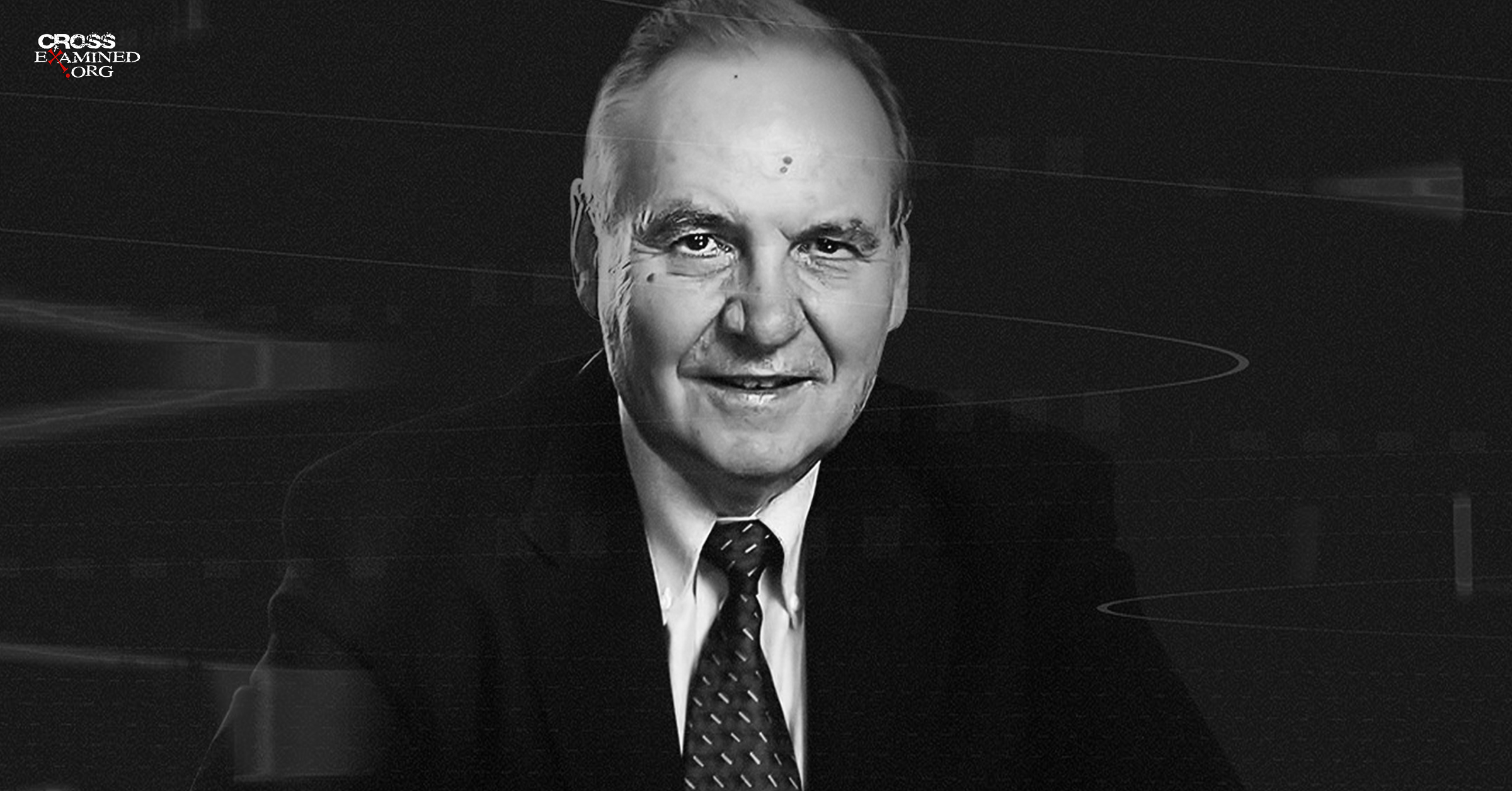By Ryan Leasure
This article is part 5 in a nine-part series on how we got our Bible. Part 1 considered inspiration and inerrancy. Part 2 looked at the unfolding of the Old Testament. Part 3 examined the Old Testament canon and the Apocrypha. Part 4 considered the canonical attributes for New Testament books. This article will unpack how the early church received the New Testament canon.
Marcion (AD 85-160)
Before diving into the the corporate reception of the canon, it’s first necessary to say a brief word about Marcion. According to church historian Henry Chadwick, Marcion was “the most radical and to the church the most formidable of heretics.”[1] What was Marcion’s heresy? He promoted Gnosticism—the belief that the god who created the world was evil, and thus the OT was evil. This belief led Marcion to reject the entire OT and most parts of the NT which spoke positively of the OT.
Therefore, Marcion’s canon included a mutilated version of Luke which left out all positive references to the OT as well as any hints that Jesus might have actually been a physical human. Gnosticism, after all, taught that the physical world was evil. Jesus, then, only appeared to be human—a view known as Docetism.
The Church universally rejected Marcion. Not one church Father has anything remotely positive to say about him. In fact, after Marcion made a sizable donation to the church in Rome, they returned it to him after they learned of his heretical views.
When did the Church Receive the Canon?
Marcion’s so-called canon suggests that the church already had some kind of functional canon by the middle-part of the second century. Which raises a significant question: When did the Church receive the NT canon? One’s answer to this question depends largely on how they define the canon. Michael Kruger gives three definitions:[2]
Exclusive Canon — The church solidified the canonical boundaries in the fourth century.
Functional Canon — The core canonical texts were functioning authoritatively by the second century.
Ontological Canon — The texts were authoritative as soon the apostles finished writing them.
The rest of this post will focus mostly on the functional canon and a little on the exclusive canon. For more on the ontological canon, see the first post in this series on the inspiration of biblical texts. In that article, I draw attention to the fact that the biblical authors were aware that they were writing authoritative Scripture.
The Reception of the New Testament Canon
In the remaining space, I’m going to argue that the church recoginzed most of the NT as authoritative by the second century. The church later affirmed the fringes of the canon in the fourth century. To support this claim, I will consider four key points.
1. Statements by Church Fathers
Several statements from the church fathers suggest that they recognized certain texts as authoritative. Irenaeus (AD 180), for example, notes, “It is not possible that the gospels can be either more or fewer than the number they are. For since there are four zones of the world in which we live and four principle winds . . . [and] the cherubim, too were four-faced.”[3] While we may scratch our heads at Irenaeus’ logic, one thing is for certain: He believed that four and only four Gospels were authoritative.
Justin Martyr (AD 150) also recognized their authority when he mentioned that the church was reading these texts in corporate worship alongside the OT. He remarks, “And on the day called Sunday, all who live in cities or in the country gather together in one place, and the memoir of the apostles or the writings of the prophets are read, as long as time permits.”[4] No one questions whether the early church recognized the authority of the OT. The fact that they were reading NT texts alongside the OT suggests they believed both were Scripture.
Ignatius (AD 110) recognizes the apostles’ authority verses his own when he said, “I am not commanding you as Peter and Paul did. They were apostles, I am condemned.”[5] Ignatius was an influential church leader in the second century. But even he recognized that Peter and Paul’s writings were on a whole other level from his own.
As you peruse the early church fathers, you will find several quotes referencing the authority of the NT texts.
2. Appeals to Texts as Scripture
Not only do the early church fathers state that the New Testament texts were authoritative, they also appeal to them as divinely inspired Scripture. The Epistle of Barnabas (AD 130), for example, uses the formula “it is written” when it quotes from the Gospel of Matthew. It’s well-noted that the NT authors frequently employ this formula when they quote an OT text. The Epistle of Barnabas reads, “As it is written, ‘Many are called, but few are chosen.’”[6]
Polycarp (AD 110) makes an even more explicit reference. He notes, “As it is written in these Scriptures, ‘Be angry and do not sin and do not let the sun go down on your anger.”[7] Interestingly, Polycarp quotes two texts and refers to them both as “Scripture.” The first text was Psalm 4:5, and the second was Ephesians 4:26.
In fact, by the middle to end of the second century, a few well-known church fathers appeal to a core set of canonical books, indicating that they believed those books were in fact Scripture. Irenaeus appeals to the following books as Scripture:
Matthew, Mark, Luke, John, Acts, Romans, 1 Corinthians, 2 Corinthians, Galatians, Ephesians, Philippians, Colossians, 1 Thessalonians, 2 Thessalonians, 1 Timothy, 2 Timothy, Titus, Hebrews, James, 1 Peter, 1 John, 2 John, and Revelation.[8]
Only Philemon, 2 Peter, 3 John, and Jude are missing.
Similarly, Clement of Alexandria appeals to the following books as Scripture:
Matthew, Mark, Luke, John, Acts, Romans, 1 Corinthians, 2 Corinthians, Galatians, Ephesians, Philippians, Colossians, 1 Thesalonians, 2 Thessalonians, 1 Timothy, 2 Timothy, Titus, Philemon, Hebrews, 1 Peter, 1 John, 2 John, Jude, and Revelation.[9]
Only James, 2 Peter, and 3 John are missing.
Around AD 250, Origen gives us a complete canonical list in his homily on Joshua. Notice carefully all the books that he references:
But when our Lord Jesus Christ comes, whose arrival that prior son of Nun designated, he sends priests, his apostles, bearing “trumpets hammered thin,” the magnificent and heavenly instruction of proclamation. Matthew first sounded the priestly trumpet in his Gospel; Mark also; Luke and John each played their own priestly trumpets. Even Peter cries out with trumpets in two of his epistles; also James and Jude. In addition, John also sounds the trumpet through his epistles [and Revelation], and Luke, as he describes the Acts of the Apostles. And now that last one comes, the one who said, “I think God displays us apostles last,” and in fourteen of his epistles, thundering with trumpets, he casts down the walls of Jericho and all the devices of idolatry and dogmas of philosophers, all the way to the foundations.[10]
You’ll notice that Origen attributes fourteen letters to Paul instead of thirteen. The most likely explanation for this error is the common belief that Paul wrote the book of Hebrews.
3. Manuscript Evidence
One of the best indications that the NT books functioned authoritatively in the second and third century is the amount of extant manuscripts we have in our possession. As of right now, we have over sixty NT manuscripts from the second and third century. The Gospel of John has the most with eighteen. Matthew comes in second with twelve. By comparison, we have seventeen second and third century manuscripts of all the apocryphal texts combined. In other words, we have more manuscripts of John than all the apocryphal books put together. The most manuscripts for any apocryphal text is the Gospel of Thomas which has three.
The amount of extant manuscripts indicates which books the church used most often. John and Matthew were apparently the two most popular books in the early church based on the number of extant manuscripts in our possession. The fact that we have hardly any apocryphal manuscripts indicates that the early church didn’t have much use for them.
Also of note is the fact that all of the second and third century New Testament manuscripts are in a codex format (precursor to modern books). None are on a scroll. That said, the scroll was the most popular book form of the second and third century. Over time, as Christianity grew, codex became the dominant book form in the ancient world.
While none of the New Testament texts are on a scroll, apocryphal texts are. Furthermore, because the codex allowed the church to conveniently place several books into a single codex, we have several codices with multiple Gospels and Paul’s letters. P46, for example, is a collection of nine of Paul’s letters. P75 contains Luke and John. P45 is a four Gospel codex. We don’t have a single codex which combines canonical and apocryphal gospels. In other words, no manuscript has Matthew, Mark, Luke, John, and Thomas. The manuscripts tell us all we need to know about which books the early church thought were authoritative.
4. Canonical Lists
In 1740, Lodovico Antonio Muratori published a Latin list of NT books known as the Muratorian Fragment. This fragment contains an early canonical list that most trace back to the second century church in Rome. The canon includes the following books:
Matthew, Mark, Luke, John, Acts, Romans, 1 Corinthians, 2 Corinthians, Galatians, Ephesians, Philippians, Colossians, 1 Thessalonians, 2 Thessalonians, 1 Timothy, 2 Timothy, Titus, Philemon, 1 John, 2 John, Jude, and Revelation.
Only Hebrews, James, 1 Peter, 2 Peter, and 3 John are missing. This list, along with the lists from the early church fathers, indicates that the second century church recognized a core group of canonical books by the middle to late second century. Only a few fringe books are missing. As time progressed, the church eventually affirmed the twenty-seven book canon that we have today.
Around AD 320, church historian Eusebius gave a canonical list that he subdivided into four categories:[11]
Recognized Books: Eusebius remarks that these books were universally accepted.
Matthew, Mark, Luke, John, Acts, Romans, 1 Corinthians, 2 Corinthians, Galatians, Ephesians, Philippians, Colossians, 1 Thessalonians, 2 Thessalonians, 1 Timothy, 2 Timothy, Titus, Philemon, Hebrews, 1 Peter, 1 John, and Revelation
Disputed Books: Eusebius remarked that these books were “disputed yet known by most.”
James, 2 Peter, 2 John, 3 John, and Jude
Spurious Books: Eusebius notes that these were books that the early church found helpful, but they weren’t Scripture.
Acts of Paul, Shepherd of Hermes, Revelation of Peter, Epistle of Barnabas, Didache, and Gospel of Hebrews
Heretical Books: Eusebius says these books have been universally rejected.
Gospel of Peter, Gospel of Thomas, Acts of Andrew, Acts of John, and Gospel of Matthias
Notice that between the recognized and disputed books which were “known by most,” the entire New Testament canon is present. Also worth noting is that Eusebius believed the heretical books were utterly repulsive. Consider his words:
we have felt compelled to give this catalogue in order that we might be able to know both these works and those that are cited by the heretics under the name of the apostles, including, for instance, such books as the Gospels of Peter, of Thomas, of Matthias, or of any others besides them, and the Acts of Andrew and John and the other apostles, which no one belonging to the succession of ecclesiastical writers has deemed worthy of mention in his writings. And further, the character of the style is at variance with apostolic usage, and both the thoughts and the purpose of the things that are related in them are so completely out of accord with true orthodoxy that they clearly show themselves to be the fictions of heretics. Wherefore they are not to be placed even among the rejected writings, but are all of them to be cast aside as absurd and impious.
In other words, these books didn’t “almost” make it into the canon. The canon didn’t come down to an arbitrary vote. The church rejected these books from a very early time due to their devilish nature.
Following Eusebius, Athanasius gave a complete canonical list with all twenty-seven books in AD 367. In AD 393 and 397, the Councils of Hippo and Carthage also affirmed the twenty-seven books in the canon.
Recognized Not Determined
In closing, I want to make an important point. The church did not grant authority to any NT text. It merely recognized which books were already authoritative in the church. As J. I. Packer helpfully states, “The Church no more gave us the New Testament canon than Sir Isaac Newton gave us the force of gravity. God gave us gravity . . . Newton did not create gravity but recognized it.”
In the next post, we will transition to the preservation of the NT text. Specifically, we will take a look at the manuscript tradition and textual criticism.
References
[1] Henry Chadwick, The Early Church, 39.
[2] Michael Kruger, The Question of Canon, 29-46.
[3] Irenaeus, Against Heresies, 3.11.8.
[4] Justin Martyr, First Apology, 67.3.
[5] Ignatius, Romans. 4:4.
[6] Epistle of Barnabas 4.14.
[7] Polycarp, Philippians, 12.1.
[8] Michael Kruger, Canon Revisited, 228.
[9] Michael Kruger, The Question of Canon, 168.
[10] Origen, Homily on Joshua 7.1.
[11] Eusebius, Church History, 3.25.1-7.
Recommended resources related to the topic:
Why We Know the New Testament Writers Told the Truth by Frank Turek (DVD, Mp3 and Mp4) Jesus, You and the Essentials of
Christianity by Frank Turek (INSTRUCTOR Study Guide), (STUDENT Study Guide), and (DVD) Cold-Case Christianity: A Homicide
Detective Investigates the Claims of the Gospels by J. Warner Wallace (Book)
_____________________________________________________________________________________________________________________________________________________
Ryan Leasure holds a Master of Arts from Furman University and a Masters of Divinity from the Southern Baptist Theological Seminary. Currently, he’s a Doctor of Ministry candidate at the Southern Baptist Theological Seminary. He also serves as a pastor at Grace Bible Church in Moore, SC
Original Blog Source: https://bit.ly/3KTGEHP










